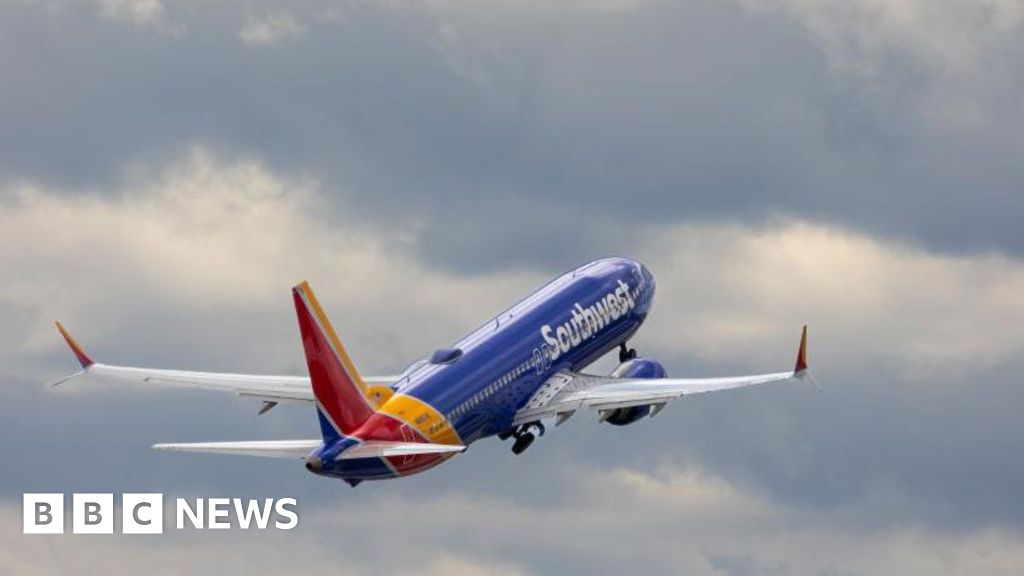spoiler
US regulators are investigating after an incident in which a Boeing 737 Max 8 flown by Southwest Airlines rocked side to side while in air, in a potentially dangerous movement known as a "Dutch roll".
It is one of two new inquiries involving Boeing planes that the Federal Aviation Administration (FAA) has recently confirmed.
The agency is also involved after Boeing reported learning of potentially falsified documents used to certify titanium used in its planes.
The issues have emerged at a time when the safety record of Boeing planes is under intense scrutiny.
Boeing referred questions about the Southwest flight to the airline, which said it was cooperating with the investigation.
Boeing said the issue involving titanium was "industry-wide" involving shipments from a limited set of suppliers.
It said tests performed so far indicate that the correct alloy was used, despite the false documentation.
It said it sourced the metal separately from its supplier and it believed a small number of parts had been affected.
"To ensure compliance, we are removing any affected parts on airplanes prior to delivery. Our analysis shows the in-service fleet can continue to fly safely,” the company said.
The New York Times, which first reported the issue, said a supplier to Spirit Aerosystems, which makes parts for Boeing and European plane-maker Airbus, started looking into the issue after noticing holes from corrosion.
Spirit, which had alerted the two manufacturers to the problem earlier this year, said more than 1,000 tests had been completed on the suspect parts, which had been removed from production.
"It is the documents that were counterfeit, not the titanium," spokesman Joe Buccino said. "The problem is we've lost traceability."
The FAA said Boeing had issued a bulletin to suppliers to be on the alert for counterfeit records and that it was probing the scope of the issue.
The so-called Dutch roll, reportedly named after the movement in a gliding ice skating technique attributed to the Netherlands, occurred on a 25 May flight from Phoenix, Arizona to Oakland, California.
The FAA said the aircraft regained control and no one on board was injured but the plane suffered "substantial" damage.
A post-flight inspection of the two-year-old plane revealed significant damage to a unit that provides backup power to the rudder.
"Dutch roll can be unpleasant but the 737 exhibits relatively benign characteristics. The time elapsed since the incident, and the absence of airworthiness action on the fleet, suggest that this is a one-off, not another widespread problem for Boeing," said Tim Atkinson, a former UK accident investigator turned consultant.
Safety campaigners have raised alarm about the quality of recent planes produced by Boeing.
An incident in which a panel broke off a plane in mid-air in January reignited concerns, sparking lawsuits and increased oversight of Boeing.
Boeing has slowed its production and last month presented the FAA with an action plan aimed at resolving the issues.
Rolling the plane like the movie Flight with Denzel Washington.
much like the disappointment in eating any dutch food described as 'roll' their eponymic air maneuvers are also devastatingly underwhelming






